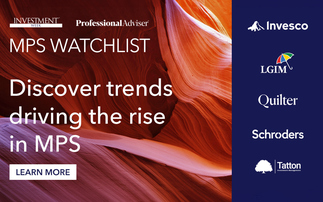
The Internet? Bah!
Hype Alert: Why cyberspace isn't, and will never be, nirvana
Newsweek headline, February 27, 1995
We humans can be an impatient lot, quick to make sweeping, but often unqualified, judgements about the latest trends. This Newsweek headline is a good reminder of how much scepticism there was around the potential of the internet when it was still in its infancy. Go further back, and you'll find tales of Henry Ford's struggle to secure financing for his Model-T car, with cynical bankers refusing to lend him money on the basis automobiles would never replace horses.
2022 has seen growing cynicism towards the ESG movement
It is worth reflecting on these examples in the context of the changing mood music towards environmental, social and governance (ESG) investing. After enjoying a honeymoon period in recent years, where flows towards funds bearing an ESG label surged and CEOs of major companies found ‘purpose', 2022 has seen growing cynicism towards the movement.
Some critics have cited Russia's invasion of Ukraine, and the concerns over energy security it has triggered, as ‘evidence' investors have mistakenly turned away from fossil fuels because of ESG grounds. And with inflation hitting multi-decade highs in many developed economies, other commentators say this is not the time to be getting bogged down in ethical issues.
Suffice to say, we don't agree with the criticisms. Of course, things can be improved, but writing off a movement when it is still relatively young is seriously misguided. As every quarter passes, ESG data is improving, company reporting is becoming more transparent and, ultimately, the ability to allocate capital on the basis of ESG criteria is getting better.
Notwithstanding the need for data to improve and evolve, for us, investing on the basis of ESG considerations is not a "nice to have"; the business and investment cases for acting responsibility are already hard to dispute. A growing body of evidence shows incorporating ESG into investment decision-making not only makes the world a better place, but also enables fund managers to mitigate risk and identify new opportunities. This is why it is one of the three key pillars of our MAF Core range.
MAF Core: a three-pronged approach to ESG
Our approach to ESG is threefold: 1) avoid the bad; 2) invest in the good; 3) engage and improve.
On the first point, the MAF Core range applies the Aviva Investors baseline exclusions policy to areas such as controversial weapons, thermal coal, Arctic oil, oil sands and tobacco, as well as companies deemed to have committed serious breaches of the United Nations Global Compact.
As for investing in the good, we take a multi-faceted approach. The building blocks in MAF Core integrate ESG into security selection. We believe the basis of any ESG-focused approach is in-depth quantitative and qualitative research. We use this to generate a proprietary ESG score that is applied to over 30,000 securities (based on a number of third-party data inputs). This provides a clear reference point for our investment teams.
MAF Core uses passive ESG-optimised strategies, which utilise this scoring system. Furthermore, our allocation to global equities also seeks to deliver a lower carbon-intensity score than the underlying markets.
Asset allocation decisions also consider ESG factors. The multi-asset portfolio managers are responsible for taking ESG factors into account when making investment decisions. They are supported by a large team of dedicated ESG professionals, who specialise in issues such climate change, biodiversity, human rights and corporate governance.
Working with the Multi-asset and Macro team, the ESG analysts contribute to our quarterly House View, which sets out our collective judgement on the current economic and market environment and developing trends. This forms the basis for investment idea generation and asset allocation decisions across the business.
Investing is just the start: the importance of active engagement
The process doesn't end after we make an investment. We hold the companies we own to account. At the heart of this approach is our conviction that impactful engagement with companies is a more powerful tool than exclusion - although we may decide to exit an investment if a firm fails to engage or improve.
This stance is confirmed by our strong voting and engagement track record. In 2021, we voted on over 70,000 resolutions at 6,648 shareholder meetings, voting against management 27 per cent of the time; when it came to pay proposals, we voted against management 47 per cent of the time.
At the start of every year, our CEO, Mark Versey, sends a letter to company chairpersons setting out our stewardship priorities and expectations of company boards. In 2021, the letter made it clear that "boards should show restraint when determining executive pay during periods of low wage inflation, cost-cutting initiatives and when there has been a significant erosion in stakeholder value". We were also clear we would vote against management teams who fell short of our expectations.
Overall, we engaged 2,959 times with companies, helping drive positive change on issues such as the inclusion of female executives on boards and establishing robust climate change targets.
But there are still deep-rooted problems investors can't tackle in isolation. That's why, in addition to ESG integration and active ownership, we seek to influence policymakers and regulators to create more sustainable financial markets - what we call macro-stewardship. As part of our efforts in this field, we were among the founding signatories of the UN's Principles for Responsible Investment in 2006; helped design the UN Sustainable Development Goals; and contributed to the drafting of MiFID, European regulation to improve market transparency.
Scale and influence
In the face of major economic and societal issues like climate change, biodiversity loss and social inequality, we believe the combined power of capital allocation that considers ESG factors, targeted corporate engagement, and macro stewardship can make a big difference.
We currently manage around £98 billion in multi-asset portfolios. That kind of scale gives us considerable influence to try and change things for the better. Our MAF Core clients can be part of this journey, while at the same benefiting from a solution offering diversification and value for money.
This post is funded by Aviva Investors
Key Risks
For further information on the risks and risk profiles of our funds, please refer to the relevant KIID and Prospectus.
Investment risk - The value of an investment and any income from it can go down as well as up and can fluctuate in response to changes in currency exchange rates. Investors may not get back the original amount invested.
Emerging markets risk - Funds may invest in emerging markets; these markets may be volatile and carry higher risk than developed markets.
Derivatives risk - The funds may use derivatives; these can be complex and highly volatile. Derivatives may not perform as expected, which means the funds may suffer significant losses.
Important information
Except where stated as otherwise, the source of all information is Aviva Investors Global Services Limited ("Aviva Investors"). Unless stated otherwise any opinions expressed are those of Aviva Investors. They should not be viewed as indicating any guarantee of return from an investment managed by Aviva Investors nor as advice of any nature. The value of an investment and any income from it can go down as well as up. Investors may not get back the original amount invested.
The Aviva Investors Multi‐asset Funds comprise two ranges, each with five funds (together the "Funds"):Aviva Investors Multi-asset Plus Fund range comprises the Aviva Investors Multi‐asset Plus Fund I ("MAF Plus I"), the Aviva Investors Multi‐asset Fund Plus II ("MAF Plus II"), the Aviva Investors Multi‐asset Plus Fund III ("MAF Plus III"), the Aviva Investors Multi‐asset Plus Fund IV ("MAF Plus IV") and the Aviva Investors Multi‐asset Plus Fund V ("MAF Plus V") Aviva Investors Multi-asset Core Fund range comprises the Aviva Investors Multi‐asset Core Fund I ("MAF Core I"), the Aviva Investors Multi‐asset Fund Core II ("MAF Core II"), the Aviva Investors Multi‐asset Core Fund III ("MAF Core III"), the Aviva Investors Multi‐asset Core Fund IV ("MAF Core IV") and the Aviva Investors Multi‐asset Core Fund V ("MAF Core V").
The Funds are sub-funds of the Aviva Investors Portfolio Funds ICVC. For further information please read the latest Key Investor Information Document and Supplementary Information Document. The Prospectus and the annual and interim reports are also available on request. Copies in English can be obtained free of charge from Aviva Investors UK Fund Services Limited, St Helen's, 1 Undershaft, London EC3P 3DQ. You can also download copies from our website. Issued by Aviva Investors UK Fund Services Limited. Registered in England No 1973412. Authorised and regulated by the Financial Conduct Authority. Firm Reference No. 119310. Registered address: St.Helen's, 1 Undershaft, London EC3P 3DQ. An Aviva company. 350553 - 30/09/23











